Using Malware

How can I protect my network from malware and viruses ?
Malware and viruses can cause significant damage to your network, including data loss, system crashes, and identity theft. To protect your network from these threats, you need to implement a comprehensive security strategy that includes installing antivirus and anti-malware software, using a firewall, keeping your system up-to-date, using strong passwords and 2FA, educating yourself and your employees, and regularly backing up your data. By implementing these steps, you can significantly reduce the risk of malware and virus infections on your network.

What are the risks associated with using public Wi-Fi networks ?
Using public Wi-Fi networks can expose you to various risks and vulnerabilities, including Man-in-the-Middle attacks, unencrypted data transmission, malware distribution, phishing scams, insufficient security measures, lack of privacy, session hijacking, and denial of service attacks. To protect yourself from these risks, it is essential to take precautions when using public Wi-Fi networks, such as using a virtual private network (VPN), avoiding sensitive activities like online banking or shopping, and keeping your device's software up-to-date with the latest security patches.

Are there any laws or regulations regarding public Wi-Fi usage ?
Public Wi-Fi usage is governed by laws and regulations related to data protection, copyright infringement, cyberbullying, malware, and privacy policies. It is important to follow best practices for data protection, respect copyright laws, avoid cyberbullying and harassment, protect against malware and viruses, and review privacy policies to stay safe and compliant with the law.

What are some common security risks associated with using an iPhone ?
The article discusses common security risks associated with using an iPhone, including unauthorized access, malware attacks, phishing scams, and Wi-Fi networks. To protect against these risks, users should set strong passwords, enable two-factor authentication, avoid suspicious links and downloads, use a VPN when connecting to public Wi-Fi networks, and regularly scan their device for malware. By following these best practices, users can significantly reduce the risk of falling victim to security threats.
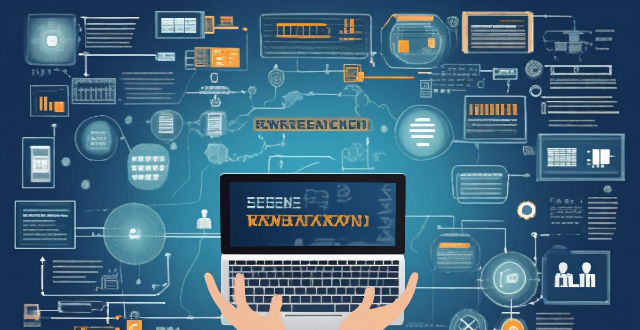
How can I ensure my business is protected from cyber threats ?
To ensure your business is protected from cyber threats, consider implementing measures such as educating employees on cybersecurity, using strong passwords and two-factor authentication, keeping software up-to-date, using antivirus and anti-malware software, securing networks with firewalls and encryption, backing up data regularly, limiting access to sensitive information, monitoring network activity, and developing incident response plans.
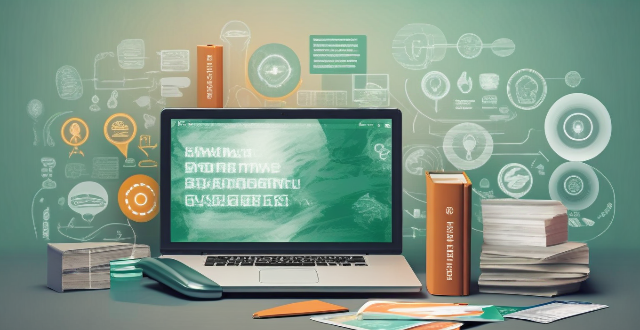
What are some common online privacy breaches and how can I prevent them ?
In today's digital age, online privacy breaches are becoming increasingly common. To protect your sensitive data, it is essential to understand the risks involved and take necessary precautions. Some of the most common online privacy breaches include phishing attacks, malware infections, unsecured networks, social engineering tactics, and data breaches. Effective prevention strategies for these breaches include being skeptical of suspicious emails or messages, using anti-phishing tools, regularly updating software, using antivirus software, avoiding suspicious downloads, using virtual private networks (VPNs) on public Wi-Fi networks, securing your home network with strong passwords and encryption settings, educating yourself about social engineering tactics, being cautious with personal information, verifying requests for sensitive information, monitoring your accounts for suspicious activity, using strong passwords, and enabling two-factor authentication. By following these strategies, you can significantly reduce the risk of online privacy breaches and protect your sensitive data from unauthorized access.
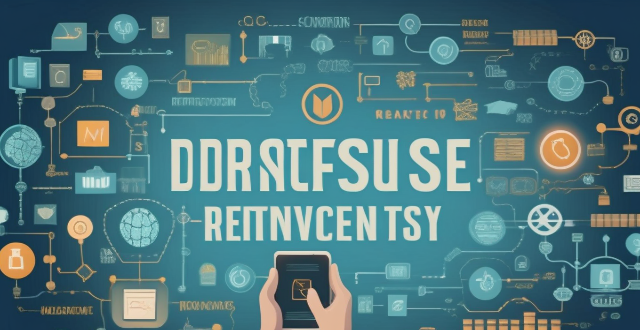
What are some common threats to digital identity and how can I prevent them ?
The text discusses the threats to digital identity and how to prevent them. It outlines common threats such as phishing attacks, malware and viruses, identity theft, data breaches, and ransomware. To prevent these threats, it suggests using strong passwords, enabling two-factor authentication, keeping software up-to-date, being cautious with emails and links, monitoring online accounts, using antivirus software, securing your network, and educating yourself about cybersecurity. By taking these precautions, individuals can reduce the risk of falling victim to threats to their digital identity.

Is it safe to use public Wi-Fi ?
The article discusses the risks associated with using public Wi-Fi, including unsecured networks, man-in-the-middle attacks, and malware distribution. It also provides precautions to take when using public Wi-Fi, such as using a VPN, avoiding accessing sensitive information, keeping devices up-to-date, and being wary of fake hotspots. The article concludes that while using public Wi-Fi can be convenient, it's important to take appropriate precautions to protect personal information.
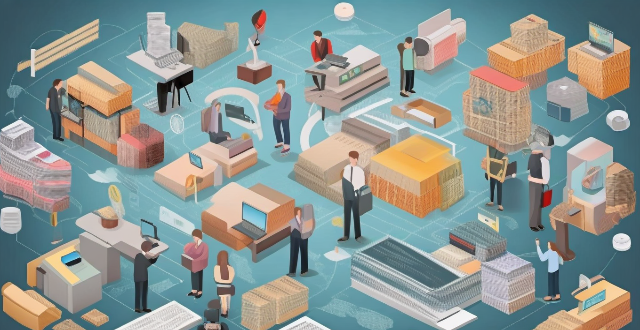
What are the risks associated with using Fintech services ?
Fintech services have revolutionized the way we manage our money, but they also come with risks. These include security risks such as phishing attacks, malware, and data breaches; privacy risks like data collection and third-party access; and financial risks including fraudulent transactions and market volatility. It is important to be aware of these risks and take steps to protect yourself when using fintech services.

What are the benefits of using data encryption in business ?
Data encryption in business offers protection of sensitive information, compliance with legal requirements, enhanced customer trust, defense against cyber threats, and controlled data access. It ensures confidentiality and integrity of communications, helps meet regulatory standards, safeguards personal data, builds customer confidence, mitigates risks of data breaches, guards against malware and ransomware, provides role-based access control, and simplifies key management. This makes encryption an essential tool for securing digital assets and strengthening a company's market position.
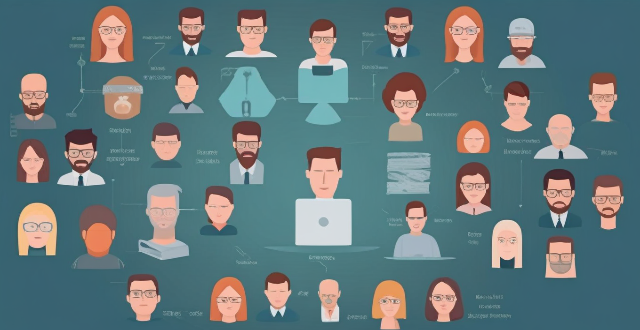
What are the risks associated with using outdated software ?
Using outdated software poses risks including security vulnerabilities, compatibility issues, and limited functionality. Regular updates are crucial for maintaining security, compatibility, and access to new features.

What are the benefits of using hidden features in iOS ?
The text discusses the benefits of using hidden features in iOS, including enhanced user experience, increased efficiency, access to experimental features, troubleshooting and problem-solving, and advanced customization. However, it also warns that using these features should be done with caution as they may not work as intended or could potentially cause issues with the device if not used properly. It is recommended to research and understand the feature thoroughly before enabling or using it, and to back up important data before making any significant changes.
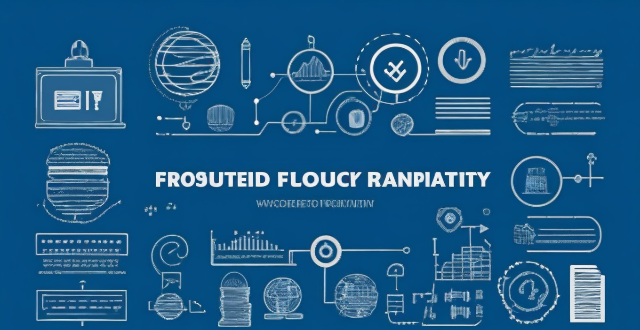
How can I stay safe while using mobile banking apps ?
The text provides a detailed guide on how to ensure the safety of personal and financial information while using mobile banking apps. It suggests downloading apps from official app stores, keeping them updated, setting up multi-factor authentication, using strong passwords, being cautious with public Wi-Fi, monitoring account regularly, not saving log-in details, and being wary of phishing scams. These measures can significantly enhance the security of mobile banking activities and protect financial information from potential threats.

How do I take stunning landscape photos using my iPhone ?
To take stunning landscape photos using your iPhone, focusTo take stunning landscape photos using your iPhone, focus the rule of thirds and play with perspectives, and mind details such as color palette and moment timing. Post-process with editing apps and accessories like a tripod or external lenses for improved results.

Is it safe to use public Wi-Fi networks with my iPhone ?
Using public Wi-Fi networks with your iPhone can be convenient, but it also poses security risks such as unsecured networks, malware attacks, and phishing scams. To stay safe, use a VPN, avoid accessing sensitive information on public networks, keep your device up-to-date, enable two-factor authentication, and be wary of fake hotspots.
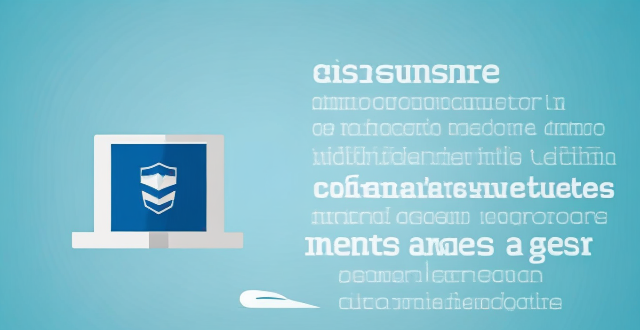
What are the main threats to communication security ?
The text discusses the main threats to communication security, which include eavesdropping and unauthorized access, malware and viruses, social engineering and phishing, insider threats, and DoS attacks. It also provides mitigation strategies for each threat, such as encryption, secure networks, physical security, antivirus software, firewalls, software updates, awareness training, email filters, multi-factor authentication, access controls, monitoring and auditing, termination procedures, rate limiting, content delivery networks (CDNs), and intrusion detection systems (IDS).

How do I know if my online activity is being monitored or tracked ?
To determine if your online activity is being monitored or tracked, check for unusual network activity, such as slow internet speeds, unfamiliar pop-ups or ads, and unfamiliar programs or applications. Also, check your browser extensions and plugins for any unusual or unknown ones. If you suspect monitoring or tracking, run a virus scan and check for unusual processes on your device. Using a VPN can help protect your online privacy by encrypting your internet connection and masking your IP address.
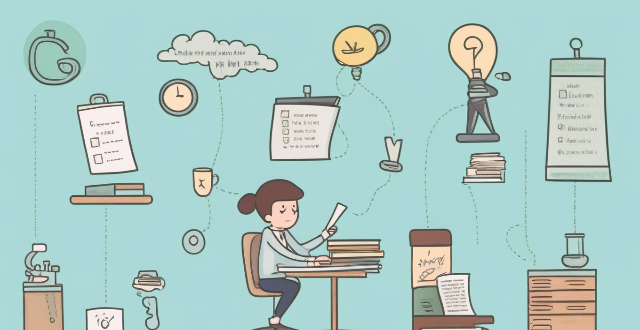
How can I stay motivated while using online learning resources ?
To stay motivated while using online learning resources, oneTo stay motivated while using online learning resources, one create a study plan, find By following these tips, one can make the most of their online learning experience and achieve their desired outcomes.

Can using certain feminine hygiene products cause infections or irritation ?
"Can Using Certain Feminine Hygiene Products Cause Infections or Irritation?": This article explores the potential risks associated with using various feminine hygiene products, including infections and irritation. It provides tips on how to prevent these risks by choosing appropriate products, practicing good hygiene, and consulting a healthcare provider if necessary. The article emphasizes the importance of using these products correctly and mindfully to maintain personal hygiene without compromising one's health.

What is the significance of using chopsticks in Chinese dining etiquette ?
Using chopsticks in Chinese dining etiquette is significant for various reasons, including respect for tradition, table manners, hygiene, fine motor skills, and social interaction. Chopsticks have been used in China for thousands of years and symbolize harmony, balance, and unity. Proper use of chopsticks demonstrates good table manners and avoids certain taboos associated with their usage. Using chopsticks also helps maintain cleanliness at the table by avoiding direct contact with hands to mouth and allows multiple people to share dishes without directly touching the food. Mastering the art of using chopsticks takes practice and patience, demonstrating dedication to learning about Chinese culture and customs. Proper chopstick etiquette facilitates smooth social interactions during meals and creates a shared dining experience among guests.

What are some best practices for protecting sensitive information on social media ?
Protecting sensitive information on social media is crucial in the digital age. To safeguard your personal data, follow these best practices: use strong passwords and a password manager; enable two-factor authentication; be cautious with personal information sharing; adjust privacy settings to restrict access; install anti-malware software; be wary of phishing scams; and always log out of accounts, especially on public devices. These steps will help ensure your online presence is secure.
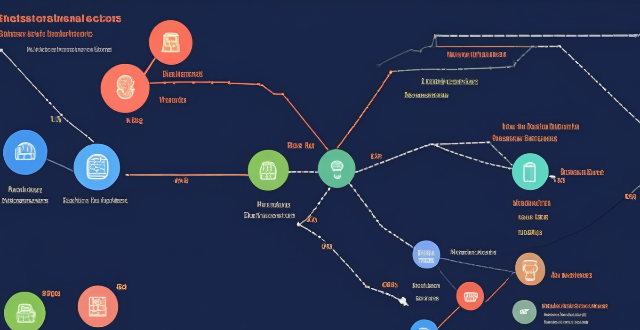
Why does my network latency fluctuate throughout the day ?
The article explores various reasons for fluctuations in network latency, including network congestion due to high traffic volume, large file transfers, and server load; physical distance and infrastructure issues related to geographical location, network hardware, and ISP differences; and local network conditions such as wireless interference, multiple devices sharing bandwidth, and malware or viruses affecting performance. It suggests ways to minimize latency fluctuations, like upgrading equipment, optimizing Wi-Fi setup, scheduling large downloads during off-peak hours, using wired connections, and scanning for malware.

How can we ensure secure communication in the age of digital technology ?
In today's digital age, secure communication is crucial. Encrypt data using HTTPS and email encryption tools, use strong passwords that are regularly updated, enable two-factor authentication, install antivirus and anti-malware software, be cautious of phishing attacks, use VPNs on public Wi-Fi networks, regularly update your devices, and educate yourself and others about cybersecurity threats and best practices.

How can I create an effective window cleaner without using alcohol or ammonia ?
In this guide, we discussed the steps to create a homemade window cleaner that is safe, non-toxic, and environmentally friendly without using alcohol or ammonia. The ingredients needed for this solution are white vinegar, distilled water, lemon juice, liquid soap (preferably natural and biodegradable), and a spray bottle. To make the solution, mix 1 cup of distilled water, 1/4 cup of white vinegar, 1 tablespoon of lemon juice, and 1/2 teaspoon of liquid soap in a spray bottle. Shake the bottle well to ensure that all the ingredients are mixed thoroughly. Test the solution on a small area first before using it on all your windows. Apply the solution onto the window surface and wipe it off with a clean, lint-free cloth or paper towel. Use a circular motion to avoid leaving streaks. Dry the windows completely with a dry cloth or paper towel. Some tips to keep in mind while using this solution are to use a microfiber cloth for best results, avoid cleaning windows in direct sunlight, use a soft-bristled brush for stubborn stains, and store the solution in a cool, dark place to prolong its shelf life. By following these simple steps, you can enjoy clean and streak-free windows while also being environmentally conscious.

What are the benefits of using a makeup palette for a quick look ?
The text discusses the advantages of using a makeup palette for a quick look, highlighting its convenience, time-saving features, versatility, cost-effectiveness, customization options, space-saving benefits, and hygiene. It emphasizes that makeup palettes are compact, all-in-one solutions that can streamline beauty routines, offer pre-designed looks, and allow for mix-and-match creativity. They often provide better value than buying products individually, reduce waste, and can be customized or refilled. Palettes also save space, declutter vanities, and are easier to clean, maintaining hygiene levels. Overall, using a makeup palette enables achieving a quick, polished look with minimal effort.
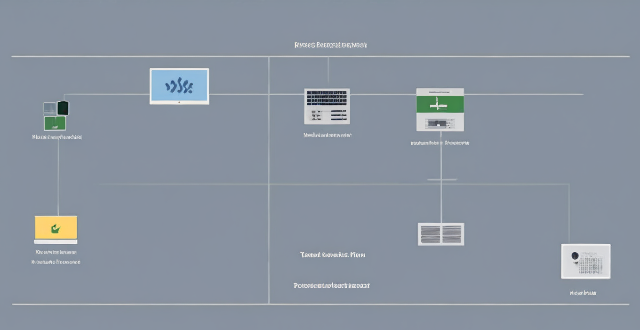
How can I improve my internet speed for better network performance ?
To improve internet speed and network performance, consider these steps: check your internet plan; optimize router position; upgrade router or modem; use wired connections; limit bandwidth hogs; scan for malware; update drivers; disable unused apps; clear cache; contact ISP.

What are the benefits of using a virtual private network (VPN) for online privacy ?
The text discusses the benefits of using a Virtual Private Network (VPN) for online privacy. It highlights five key benefits: encryption and security, anonymity and privacy, unrestricted access to content, protecting personal information, and avoiding bandwidth throttling. The text explains that a VPN encrypts internet traffic, making it difficult for hackers or third parties to intercept data. It also masks the user's IP address and physical location, making it harder for websites and advertisers to track online activities. Additionally, a VPN can bypass geo-restrictions and censorship, allowing users to access blocked content. Finally, a VPN can protect personal information from being leaked or stolen and prevent ISPs from throttling bandwidth. Overall, using a VPN can provide several benefits for online privacy.
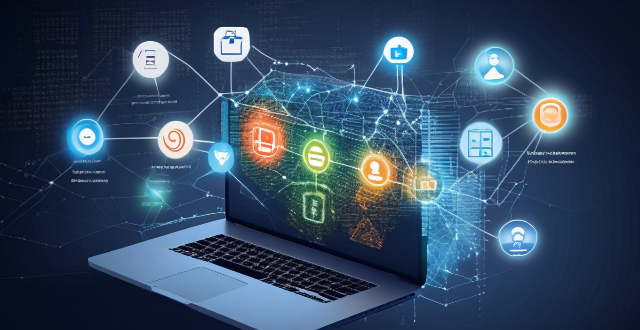
What role does AI play in improving cybersecurity ?
AI significantly enhances cybersecurity by offering advanced threat detection, risk assessment, and automated response mechanisms. It improves the efficiency and accuracy of defenses but also presents new challenges that require innovative solutions. AI's role in cybersecurity includes advanced threat detection through anomaly detection and predictive analytics, automated risk analysis for optimized defense strategies, enhanced malware detection using deep learning models and behavioral analysis, improved identity verification with biometric authentication and adaptive access controls, network automation and repair for self-healing networks and vulnerability management, and phishing and spam prevention through email security solutions and real-time alert systems. However, AI's integration into cybersecurity also introduces potential misuse by attackers, data privacy concerns, and algorithmic transparency and bias issues. Addressing these challenges is crucial for fully leveraging AI's potential in enhancing cybersecurity while upholding privacy, ethical standards, and resilience against emerging threats.

How do I meal prep for a week using simple home-cooked recipes ?
Meal prepping is an excellent way to save time, money, and ensure that you are eating healthy meals throughout the week. Here's how you can meal prep for a week using simple home-cooked recipes: 1. Plan your meals based on your dietary needs, preferences, and schedule. 2. Shop for ingredients according to your meal plan. 3. Prep your ingredients ahead of time by washing, chopping, and storing them in airtight containers. 4. Cook and assemble your meals into individual portions and store them in meal prep containers. 5. Reheat and enjoy your pre-made meals throughout the week. By following these steps, you can successfully meal prep for an entire week using simple home-cooked recipes.

Can someone hack into my device through public Wi-Fi ?
Public Wi-Fi networks pose a significant risk to the security of your devices due to various types of attacks such as man-in-the-middle, eavesdropping, and malware distribution. To protect yourself from these threats, it is recommended to use a virtual private network (VPN), avoid accessing sensitive information on public Wi-Fi, keep your device up-to-date, use two-factor authentication, and be wary of rogue Wi-Fi networks. Following these tips can significantly reduce the chances of falling victim to hackers and protect your personal information from being stolen or compromised.